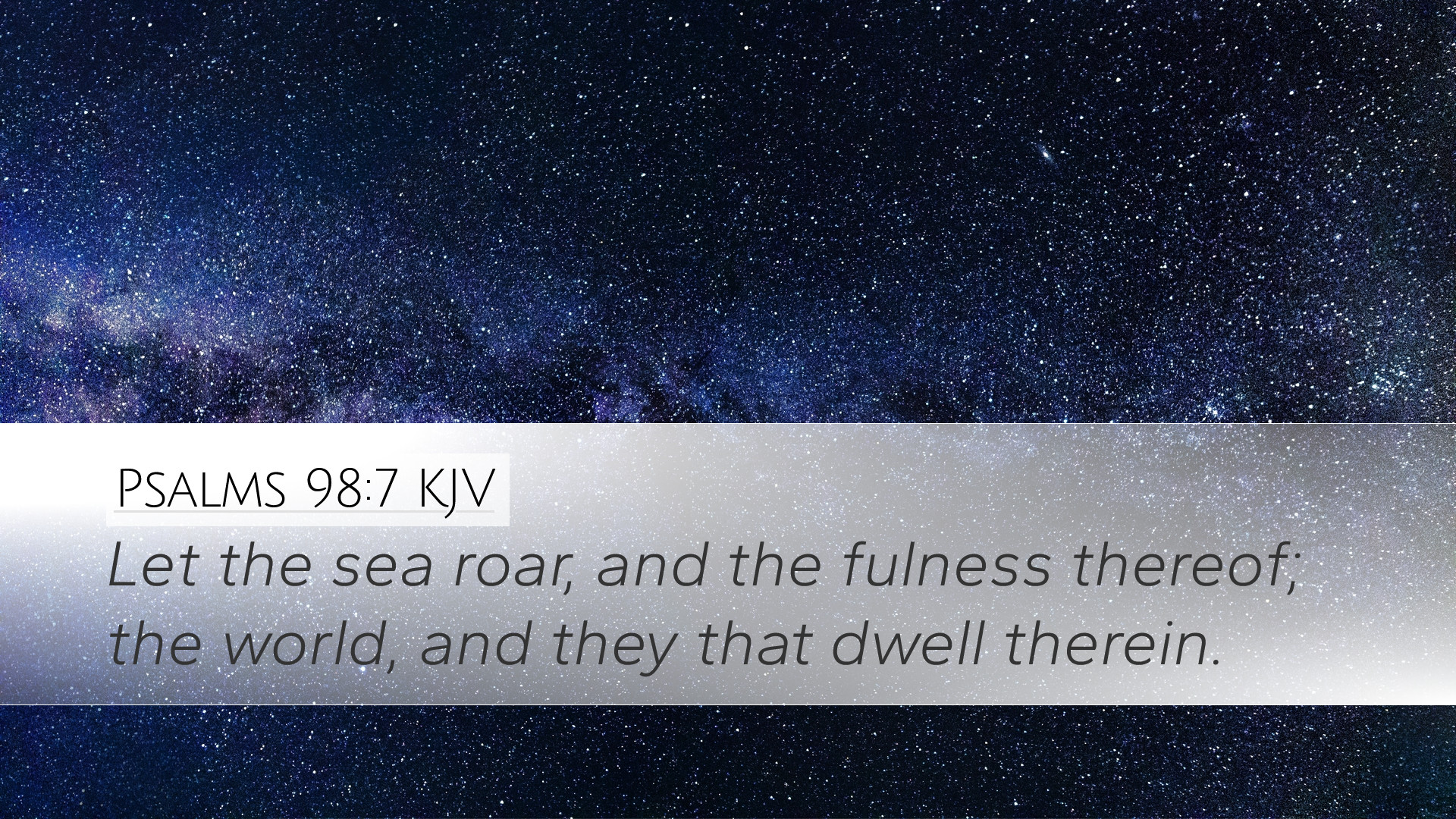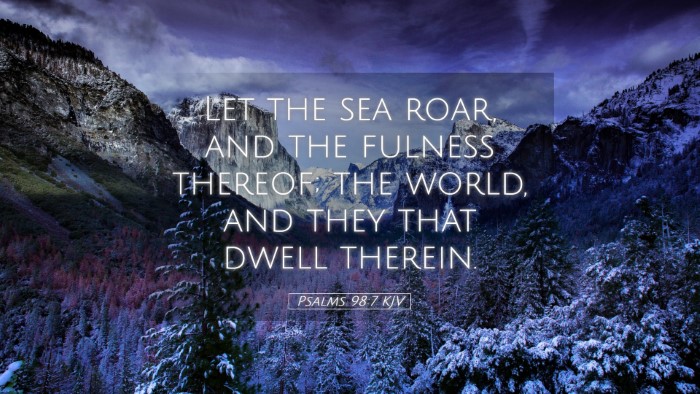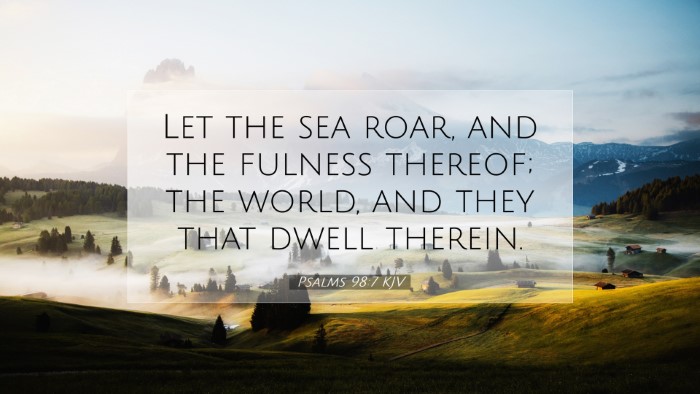Commentary on Psalms 98:7
Bible Verse: "Let the sea roar, and the fullness thereof; the world, and they that dwell therein."
Introduction
Psalms 98 is a jubilant song of praise celebrating the reign of the Lord and His salvation. In verse 7, the psalmist calls upon the natural world, particularly the seas, to respond to God’s glory. This verse is not merely a poetic flourish but an invitation for creation to join in the worship of the Creator.
Exegesis of Psalms 98:7
This particular verse can be understood as a declaration of the majesty of God and His sovereignty over all creation. This verse emphasizes the totality of God’s created order responding to His power and glory.
- Let the Sea Roar: The imagery of the sea roaring conveys both power and disturbance, symbolizing the might of God’s creation. The sea, often viewed as chaotic and uncontrollable, reflects God's authority even over such vastness.
- The Fullness Thereof: This phrase highlights the abundance within the sea—the myriad of creatures and the wealth of resources that reflect God's provision.
- The World and They That Dwell Therein: This expands the worship invitation beyond the sea to the entire earth and all of its inhabitants. All of creation is called to acknowledge God’s rule and greatness.
Insights from Public Domain Commentaries
Matthew Henry's Commentary
Matthew Henry notes that this verse serves as a summons to the sea to make a joyful noise. He emphasizes the idea that nature, in all its grandeur, is inclined to celebrate God's goodness and to take part in the harmony of praise. He further comments on how the roar of the sea can be seen both as a metaphor for the tumult of human life and a reminder of God’s ultimate authority over the chaos.
Albert Barnes' Notes on the Bible
Barnes observes that the imagery of the sea and the fullness thereof is not limited to physical creation but extends to the spiritual realm of humanity. He asserts that ‘the world’ represents all nations and people, called to recognize God’s sovereignty. Barnes draws a parallel between the tumult of the sea and the distress of humanity, urging that both find peace and purpose in the reverence of God.
Adam Clarke's Commentary
Clarke elaborates on the Hebrew terms used in the psalm, suggesting that the roaring of the sea symbolizes both the power of nature and the nations’ tumult. He suggests that the fullness of the sea includes not only its living creatures but also the wealth and beauty of creation, which should lead to glorifying the Creator. Clarke emphasizes that all inhabitants of the earth are urged to join in this cosmic praise.
Theological Reflections
In this verse, we see a profound theological principle: the call for creation to respond to God’s glory. This reflects the overarching biblical theme of God's kingship and sovereignty. The cosmos is not disinterested in the unfolding history of redemption; instead, it actively participates in the divine narrative.
- Creation's Response to the Creator: This passage illustrates the relationship between God and creation—a dynamic of worship and submission. The response of the sea and the fullness thereof is a tangible expression of God's grandeur and majesty.
- The Universality of God's Authority: The psalmist's invitation encompasses all creation, serving as a reminder that God's dominion extends beyond humanity to the entire natural order.
- The Role of Humanity: As stewards of creation, humans are uniquely positioned to recognize and proclaim God's glory, thus fulfilling the purpose of being made in His image.
Application for Today
This verse invites us to contemplate how we might engage with creation’s praise today. As pastors, students, theologians, and scholars, we are called to convey the message of God’s sovereignty and goodness, not only through our words but through our stewardship of the earth.
- Encouragement to Worship: Just as the sea roars in acknowledgment of God, we, too, should express our worship boldly, recognizing His sovereignty in our lives.
- Environmental Stewardship: Understanding that the fullness of creation belongs to God compels us to act as responsible caretakers of the earth, ensuring that we protect and preserve its resources for future generations.
- Integration of Creation in Worship: Incorporating elements of nature into our worship practices can deepen our appreciation for the Creator and His works, fostering a greater sense of connection with the world around us.
Conclusion
Psalms 98:7 serves as a powerful reminder of the interconnectedness of all creation in the act of worship. As the sea and the wealth within it are invited to roar in praise, we are reminded that every ounce of creation holds significance and purpose in glorifying God. The challenge for each of us is to be attentive to the calls around us and to respond wholeheartedly to the greatness of our God.


